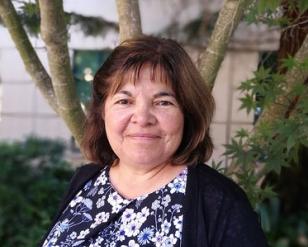“Each project required lots of creativity and flexibility; each changed from the time the Petaluma Health Center and I carved the projects together, to when they were launched. It was exciting to see how each team rose to the challenge, and come up with designs and deliverables I couldn't have thought of myself,” stated Dr. Anamary Leal about her class.
The Science 220 class has been participating in service-learning since it’s creation. Dr. Leal recognizes that the COVID pandemic has made her usual strategies difficult. So in the spring 2021 semester, her class partnered with the Petaluma Health Center (PHC) to help the community fight COVID. PHC conducted vaccine clinics for their patients at the SRJC Petaluma campus but discovered barriers and challenges in getting some of their patients vaccinated. Dr. Leal’s class was ready to find ways to break those barriers and help PCH educate the community.
One group identified the following problem: People are afraid of the vaccine, they are unsure of the long-term side effects, and they are unsure how or where to get the vaccine. To combat these concerns the group decided to go with a “Super Hero” theme to address fears around the vaccine. They used the fresh and innovative approach of Snapchat filters to communicate to patients that they are doing their part (by getting vaccinated) for the community. There were some challenges and Dr. Leal noted that using SnapChat in this way was new to her.
Another group was tasked with showcasing data in a creative way for the staff. The team made a poster that was designed to make the workers of the health center feel proud of the great service they have provided to the community. The team indicated that this poster would be displayed in the staff office.
Kimberly Keller, Director of Business Operations at PCH had this to say about the projects: “I had a wonderful time working with the students. The projects are imaginative and beautiful. I’m thankful that we’re able to share vaccine success stories and information with our community in such a unique way!”
Dr. Leal elaborated about the class in general: “This SCI 220 will always be unique and special because the activities were all remote; the pandemic gave us opportunities to teach new skills that were not taught in prior course iterations. In a pandemic, without access to fancy big machines commonly thought of in maker spaces, we got a chance to but it gave us great opportunities to incorporate new skills like embroidery, knitting, crocheting, and sewable electronics (during the fall semester). It was such a great opportunity to see students flourish in skills they have never tried before! Some students have reported how calming it was to practice these skills in these hectic times.”
Overall, the presentations and the products introduced were original and contemporary. The use of technology and thinking outside of the box was evident especially when students talked about placing their product on other platforms and talking about things like augmented reality. I was very impressed with their ingenuity. The students worked within the confines of the pandemic and came up with solutions that the community partner could implement at the vaccination site and at the health center; that was the ultimate goal.


